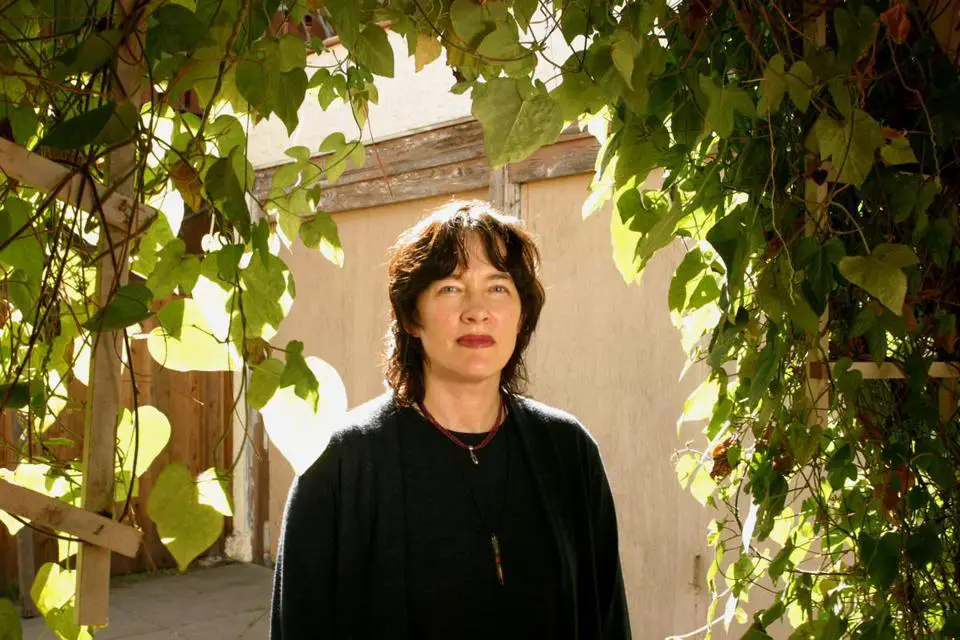Warning: discussion of sexual abuse. If you are dealing with sexual abuse, please click the link and seek help.
Recently, I had the opportunity to have a class discussion with renowned author, Alice Sebold, who penned the fiction novel “The Lovely Bones.” Fiction isn’t the only thing Sebold is revered for: She also published a memoir detailing her brutal rape, and the semblance of normalcy that shadowed the aftermath of her trauma, only to reveal itself post-graduation. The opening scene of the book is the detailed account of Sebold’s rape.
A Syracuse University freshman at the time, she was grabbed from behind while she was walking home, then was beaten and raped in a tunnel the day before the semester let out for the summer. The memoir continues with the young woman struggling with her trauma, grappling with unusual family circumstance and fighting her way through a trial. In addition to the original harrowing events, the book has been re-released with a new afterword that Sebold was inspired to write after the 2016 election. Her paperback sales re-surged and the memoir is entering the nationwide conversation once again.
In seeing her speak, I witnessed three distinct personas emerge from the woman in front of me: Alice Sebold the woman, the narrator and the author. Her book might have been written in the ’90s, but its relevance seems more poignant now than it has ever been.
The Woman
I was surprised to hear Sebold call herself an “optimist.” After all that she’s endured, to still view the world with relentless sanguineness and look for “the sincere luck” in every circumstance is incredible. Her laughter and jokes lightened what could have been a too heavy conversation, and her directness in answering questions and not shying away from any of them was remarkable.
She strikes me as the direct type, one who prefers frankness and honesty over sympathy. In our class, she chuckled when asked serious questions and smirked her way through cheeky yet genuine responses. Her courage was easily placed by her mere presence in front of my class: my school is located about an hour from Syracuse, a place she had not returned to in the thirty three years since she graduated college. Yet, she mustered the heart to return to the city that changed her life and speak about the reason she had not been back in decades.
The Author
At one point during her talk, as students continually pulled her into the realm of the larger conversation surrounding sexual assault on campus and how her story played a role in that conversation, she said “it’s just a book.” Though her story inherently contributes to discussion about rape and sexual violence, because that is the core of her story, she made it clear that she wasn’t trying to do anything or make a specific statement in her writing. She was simply telling readers about her life, paralleling the memoir structure of the book.
There was no angle involved, no persuasive tools included to sway readers towards an argument, because there wasn’t one being presented. The author said she created this book as a gift to the reader, one that’s “unfettered by the burden of the self.” Her hopes were to share the story with anyone who wanted to read, but not weigh them down with trials from her life. Sebold speaks and writes about herself, without pulling the reader into her being, and she does so with composure.
The Narrator
Though she may have published the book nearly eighteen years ago, Sebold continues to exhibit her credibility as the narrator of her story. In response to a question about the effectiveness of naming survivors rather than naming perpetrators, Sebold said “[people accused of sexual assault] shouldn’t be named until they’re found guilty.” Her acknowledgment of the person on the opposite side allows readers to trust the version of the story they’ve been told by eliminating the potential skew of the first person perspective.
In addition, readers get a full picture of the events as they unfold though the plot; Sebold held nothing back in the crafting of her work, finding ways to overcome painful details because “they were necessary for the sake of the story.” She admits to writing the opening scene last, working her way up to it chapter by chapter. Yet, the entire account of her rape is present: unconcealed, raw and terrifying. Sebold solidified herself as a narrator with the unabashed narrative she provided in writing the book, and she confirm it in her speech still today.
Why It Matters
As I worked my way through this story, heart beating at moments, tears fighting their way out at others, I was surprised to find myself feeling as if this was a familiar story, like one I had heard before. The actual incidence and details of the rape were new to me, but her explanation of the aftermath was throwing me into an uncanny déjà vu: in the way people fumbled for appropriate reactions when Sebold discloses that she had been raped, in the attempt to victim-blame her from every possible angle, even from people close to her—I had heard it before.
I felt like I knew the story of two survivors being uneasy with each other rather than feeling connected, and of women all around Sebold being affected in their own lives by rape and assault. I find it familiar because I find it in my own words when I tell people I feel “lucky” to have not been sexually assaulted thus far during my time in college. I know this story because it’s all around me, too. While things have changed since the ’80s and the stranger in the bushes paradigm is no longer the most prominent form of rape, the aftermath looks frighteningly similar, and it remains a menace on campuses today.
This speaks to the caliber of the memoir as a piece of literature, because it retains its relevance and the story itself has proven timeless. I think it also speaks to the larger issue that rape and sexual assault are still a problem. For Sebold, it was said she was “lucky” to not have been killed; for me, I am “lucky” to have not been raped. The title of this book resonates through generations, where it should echo nothing but silence. Luck has nothing to do with rape, and in its twisted irony, Sebold’s ”Lucky” won’t let audiences forget that.

















